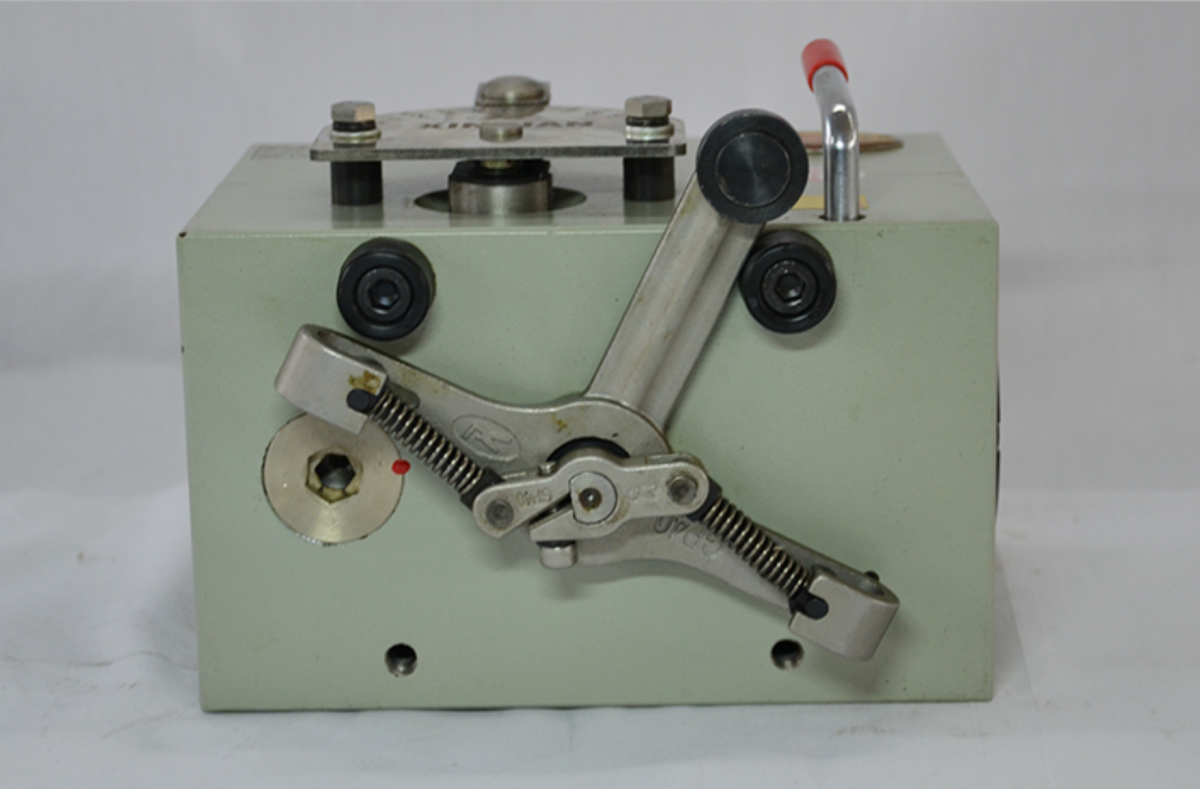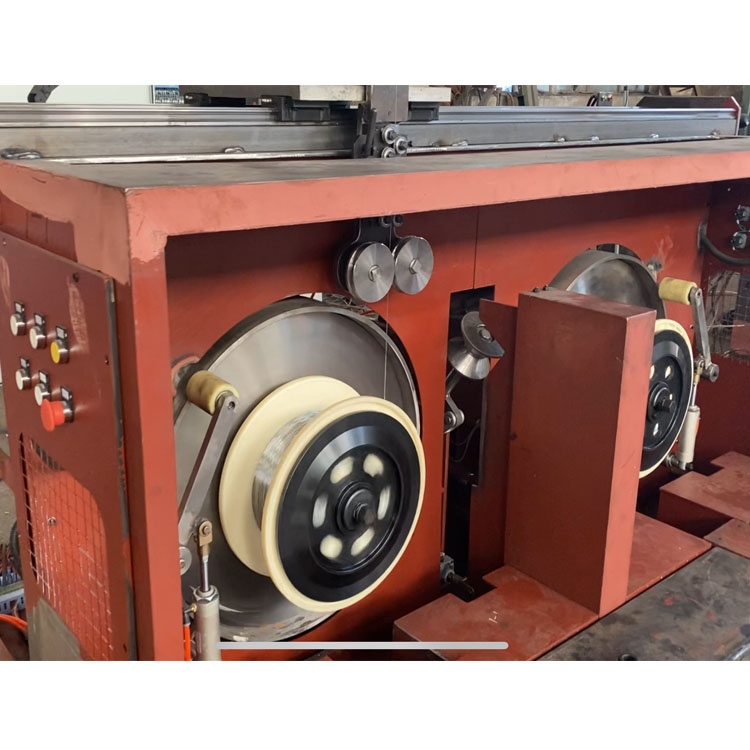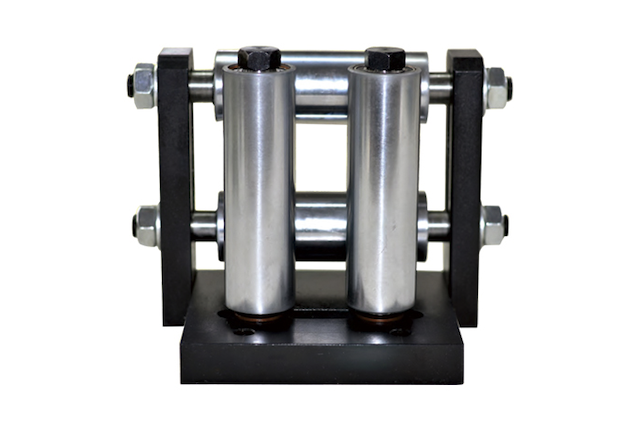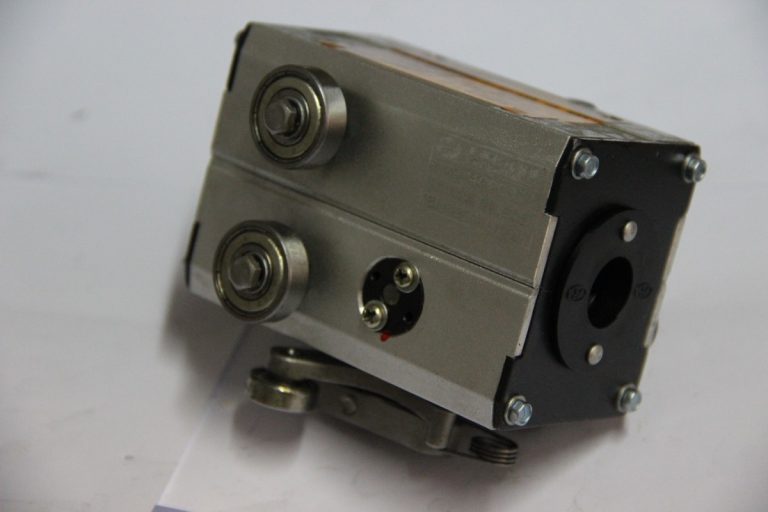Table of Contents
Advantages of Using Mechanical Traverse Units in Industrial Applications
Mechanical traverse units are essential components in various industrial applications, providing a reliable and efficient means of moving materials or equipment along a predetermined path. These units offer a range of advantages that make them a popular choice for many industries.
One of the key advantages of using mechanical traverse units is their versatility. These units can be customized to suit specific requirements, allowing for precise control over the movement of materials. Whether it’s a straight line, curved path, or complex pattern, mechanical traverse units can be designed to accommodate a wide range of movement needs.

In addition to their versatility, mechanical traverse units are also known for their durability and reliability. These units are built to withstand the rigors of industrial environments, ensuring consistent performance even in demanding conditions. This reliability is crucial for maintaining productivity and minimizing downtime in industrial settings.
Another advantage of mechanical traverse units is their efficiency. These units are designed to move materials quickly and accurately, helping to streamline production processes and improve overall efficiency. By automating the movement of materials, mechanical traverse units can help reduce labor costs and increase productivity.
Furthermore, mechanical traverse units are easy to maintain and operate. With regular maintenance and proper care, these units can provide years of reliable service. Additionally, many mechanical traverse units are equipped with user-friendly controls, making them easy to operate even for inexperienced users.
In terms of safety, mechanical traverse units offer several advantages. By automating the movement of materials, these units help reduce the risk of accidents and injuries associated with manual handling. Additionally, many mechanical traverse units are equipped with safety features such as emergency stop buttons and overload protection, further enhancing workplace safety.
Overall, the advantages of using mechanical traverse units in industrial applications are clear. From their versatility and reliability to their efficiency and safety features, these units offer a range of benefits that can help improve productivity and streamline operations in various industries. Whether it’s moving materials along a production line or transporting equipment in a warehouse, mechanical traverse units are an essential tool for many industrial applications.
How to Properly Maintain and Service Mechanical Traverse Units
Mechanical traverse units are essential components in various industrial applications, providing precise and controlled movement along a linear path. These units are commonly used in conveyor systems, packaging machinery, and other automated processes where accurate positioning is crucial. To ensure the optimal performance and longevity of mechanical traverse units, proper maintenance and servicing are essential.
Regular maintenance is key to preventing costly breakdowns and ensuring the smooth operation of mechanical traverse units. One of the most important maintenance tasks is lubrication. Proper lubrication helps reduce friction and wear on moving parts, extending the life of the unit. It is recommended to follow the manufacturer’s guidelines for the type and frequency of lubrication required for your specific traverse unit.
In addition to lubrication, regular inspection of the unit is necessary to identify any signs of wear or damage. Check for loose bolts, worn bearings, or misaligned components that could affect the unit’s performance. Addressing these issues promptly can prevent more significant problems down the line.
Another crucial aspect of maintaining mechanical traverse units is cleaning. Dust, debris, and other contaminants can accumulate on the unit’s components, leading to increased friction and potential damage. Regular cleaning with a mild detergent and water can help keep the unit running smoothly.
In addition to regular maintenance, servicing mechanical traverse units is essential to address any issues that may arise. If you notice any unusual noises, vibrations, or inconsistencies in the unit’s movement, it is crucial to have it inspected by a qualified technician. Ignoring these warning signs can lead to more significant problems and costly repairs.
When servicing a mechanical traverse unit, it is essential to work with a reputable service provider with experience in handling these types of units. They will have the expertise and tools necessary to diagnose and repair any issues effectively. It is also important to use genuine replacement parts to ensure the unit’s continued reliability and performance.
Properly maintaining and servicing mechanical traverse units not only extends their lifespan but also ensures the safety of workers and the efficiency of the production process. By following a regular maintenance schedule, inspecting the unit for wear and damage, and addressing any issues promptly, you can keep your traverse unit operating at its best.
In conclusion, mechanical traverse units play a vital role in various industrial applications, and proper maintenance and servicing are essential to ensure their optimal performance. By following the manufacturer’s guidelines for lubrication, inspecting the unit regularly, and cleaning it as needed, you can prevent costly breakdowns and keep the unit running smoothly. If any issues arise, it is crucial to have the unit serviced by a qualified technician to address the problem effectively. By taking these steps, you can extend the lifespan of your mechanical traverse unit and ensure the efficiency and safety of your operations.
The Future of Mechanical Traverse Units in Automation and Robotics Industry
Mechanical traverse units have long been a staple in the automation and robotics industry, providing precise and reliable movement for a wide range of applications. These units are essential for tasks that require controlled linear motion, such as material handling, assembly, and inspection. As technology continues to advance, the future of mechanical traverse units looks promising, with new innovations and improvements on the horizon.
One of the key trends in the automation and robotics industry is the increasing demand for faster and more efficient systems. Mechanical traverse units are no exception, with manufacturers constantly striving to improve speed and accuracy. Advances in materials and design have led to lighter and more compact units that can move at higher speeds without sacrificing precision. This is crucial for industries that require rapid and precise movement, such as semiconductor manufacturing and automotive assembly.
Another important trend in the industry is the integration of smart technology into mechanical traverse units. By incorporating sensors, actuators, and controllers, manufacturers are able to create units that can adapt to changing conditions and optimize performance in real-time. This not only improves efficiency but also reduces the need for manual intervention, making operations safer and more reliable.
The rise of Industry 4.0 has also had a significant impact on the future of mechanical traverse units. With the increasing connectivity of devices and systems, manufacturers are able to collect and analyze data from their units in real-time, allowing for predictive maintenance and optimization. This not only reduces downtime and maintenance costs but also improves overall system performance and longevity.
As automation and robotics continue to evolve, the demand for more versatile and flexible mechanical traverse units is also growing. Manufacturers are developing units that can be easily integrated into existing systems and adapted to a wide range of applications. This flexibility is essential for industries that require quick changeovers and customization, such as food and beverage packaging and pharmaceutical manufacturing.
In addition to versatility, sustainability is also becoming a key consideration in the design of mechanical traverse units. Manufacturers are increasingly focused on reducing energy consumption and environmental impact, leading to the development of units that are more energy-efficient and environmentally friendly. This not only benefits the planet but also helps companies reduce operating costs and comply with regulations.
Overall, the future of mechanical traverse units in the automation and robotics industry looks bright. With advancements in speed, precision, smart technology, versatility, and sustainability, these units are poised to play a crucial role in the continued growth and success of the industry. As manufacturers continue to innovate and improve upon existing designs, we can expect to see even more efficient and reliable units that will help drive the industry forward into the future.






